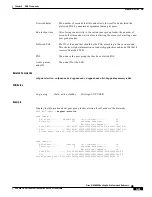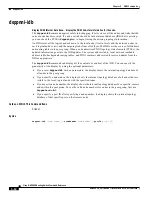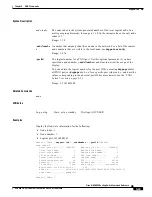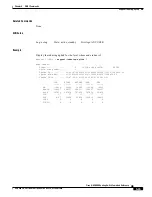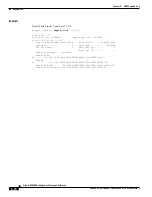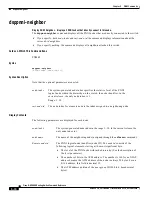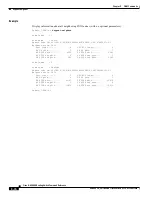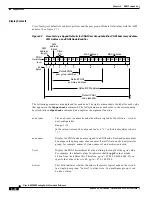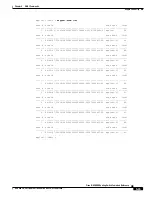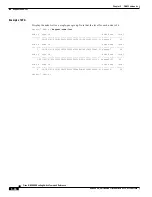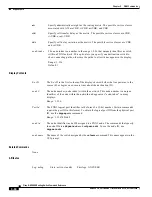
5-74
Cisco MGX 8850 Routing Switch Command Reference
Release 2.0, Part Number 78-10467-04 Rev C0, October 2001
Chapter 5
PNNI Commands
dsppnni-neighbor
dsppnni-neighbor
Display PNNI Neighbor
—
display all PNNI nodes that directly connect to this node.
The dsppnni-neighbor command displays all the PNNI nodes that are directly connected to the switch.
•
If you specify: both node-index and rmt-node-id, the command displays information about the
rmt-node-id neighbors.
•
If you specify nothing, the command displays all neighbors attached this switch.
Cards on Which This Command Runs
PXM45
Syntax
dsppnni-neighbor
[node-index [rmt-node-id]]
Syntax Description
Note that the optional parameters are nested.
Display Contents
The following parameters are displayed for each node.
node-index
The system-generated node index specifies the relative level of the PNNI
logical node within the hierarchy on the switch. the node identifier. In the
current release, the only node index is 1.
Range: 1–10
rmt-node-id
The node index for a remote node is the index assigned to a neighboring node.
node-index
The system-generated node index in the range 1–10. In the current release, the
only node index is 1.
node name
The name of the neighboring node (assigned through the cnfname command).
Remote node id
The PNNI logical node identifier (node ID). The node-id consists of the
following logical elements, starting at the most significant byte:
•
The level of the PNNI node within the hierarchy. (See the description of
the level parameter.)
•
The number of bits in the ATM address. The number is 160 for an NSAP
address because the ATM address of the node is always 20 bytes. For an
E.164 address, this field is decimal 15.
•
The ATM address portion of the peer group ID (20 8-bit, hexadecimal
bytes).


